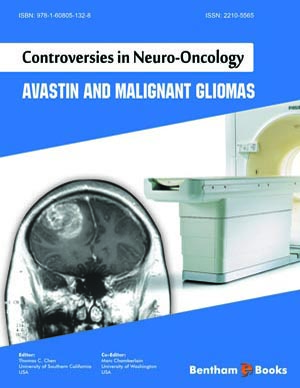Abstract
Bevacizumab, a monoclonal antibody against vascular endothelial growth factor (VEGF), recently received accelerated approval by the US Federal and Drug Adminstration as single-agent for recurrent glioblastomas (GBM). Preclinical studies suggest that inhibition of VEGF and radiotherapy (RT) have a synergistic effect in gliomas. We recently conducted a pilot study of bevacizumab and hypo-fractionated stereotactic RT for patients with recurrent GBM and anaplastic gliomas (AG). Patients received bevacizumab (10 mg/kg IV) every 2 weeks of 28-day cycle and 30 Gy of hypofractionated stereotactic RT in 5 fractions after the first cycle of bevacizumab. Twenty-five patients (20 GBM and 5 AG) were included. For the GBM cohort, overall response rate was 50%, 6-month progression free survival was 65% and median overall survival was 12.5 months. Bevacizumab with hypofractionated RT is an active regimen in malignant gliomas and is currently being studied in newly-diagnosed glioblastomas in combination with temozolomide.






















